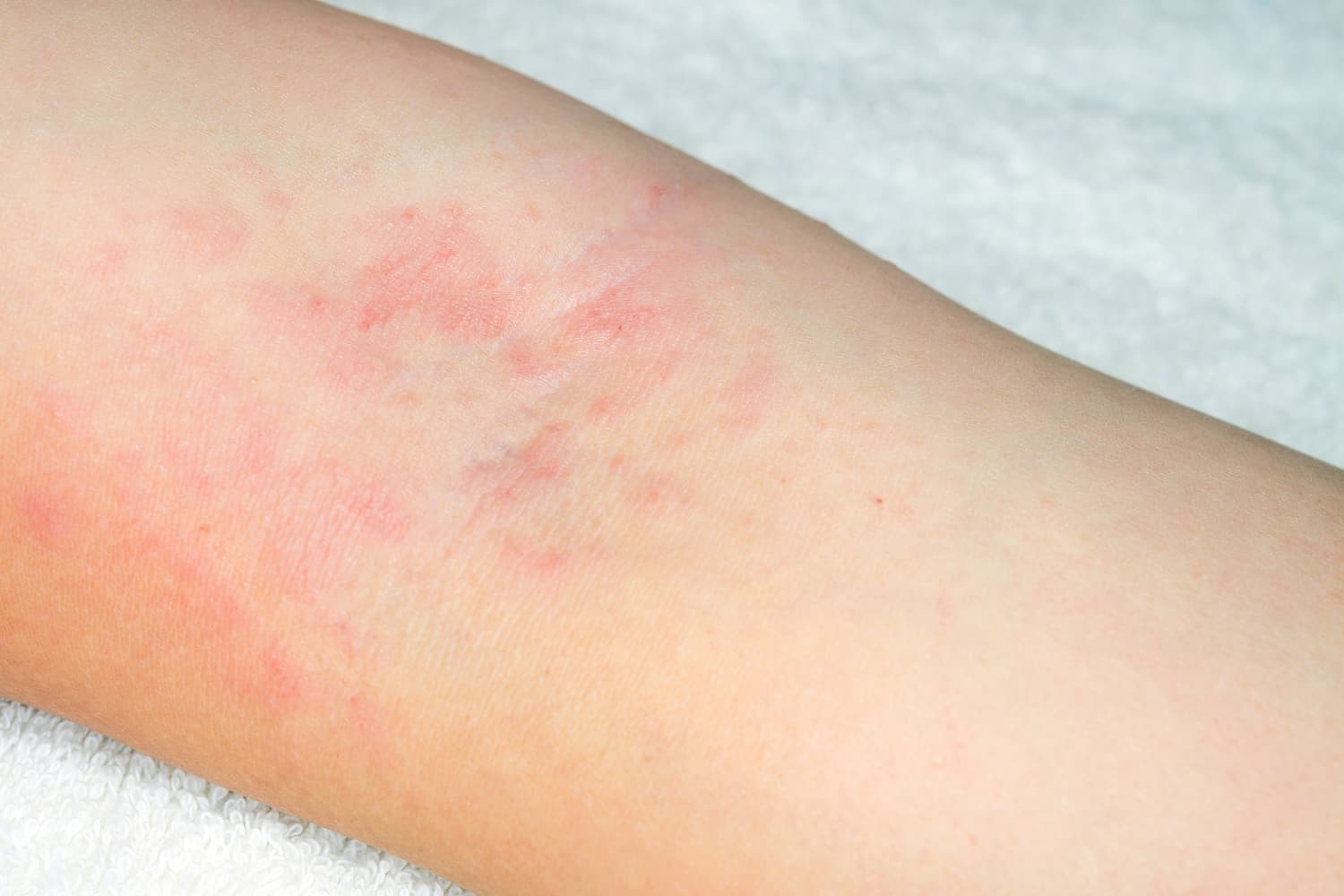Is eczema hereditary?
Yes. Eczema tends to run in families. If one or both parents have eczema it is more likely that their children will develop it too. Approximately one third of children with Eczema will also develop asthma and/or hay fever. Eczema affects both males and females equally.
What are the symptoms of atopic eczema?
The main symptom is itching. Scratching in response to itching may cause many of the changes seen on the skin. Itch can be severe enough to interfere with sleep, causing tiredness and irritability. Typically, Eczema goes through phases of being severe, then less severe, and then gets worse again. Sometimes a flare up can be due to the reasons outlined below, but often no cause can be identified.
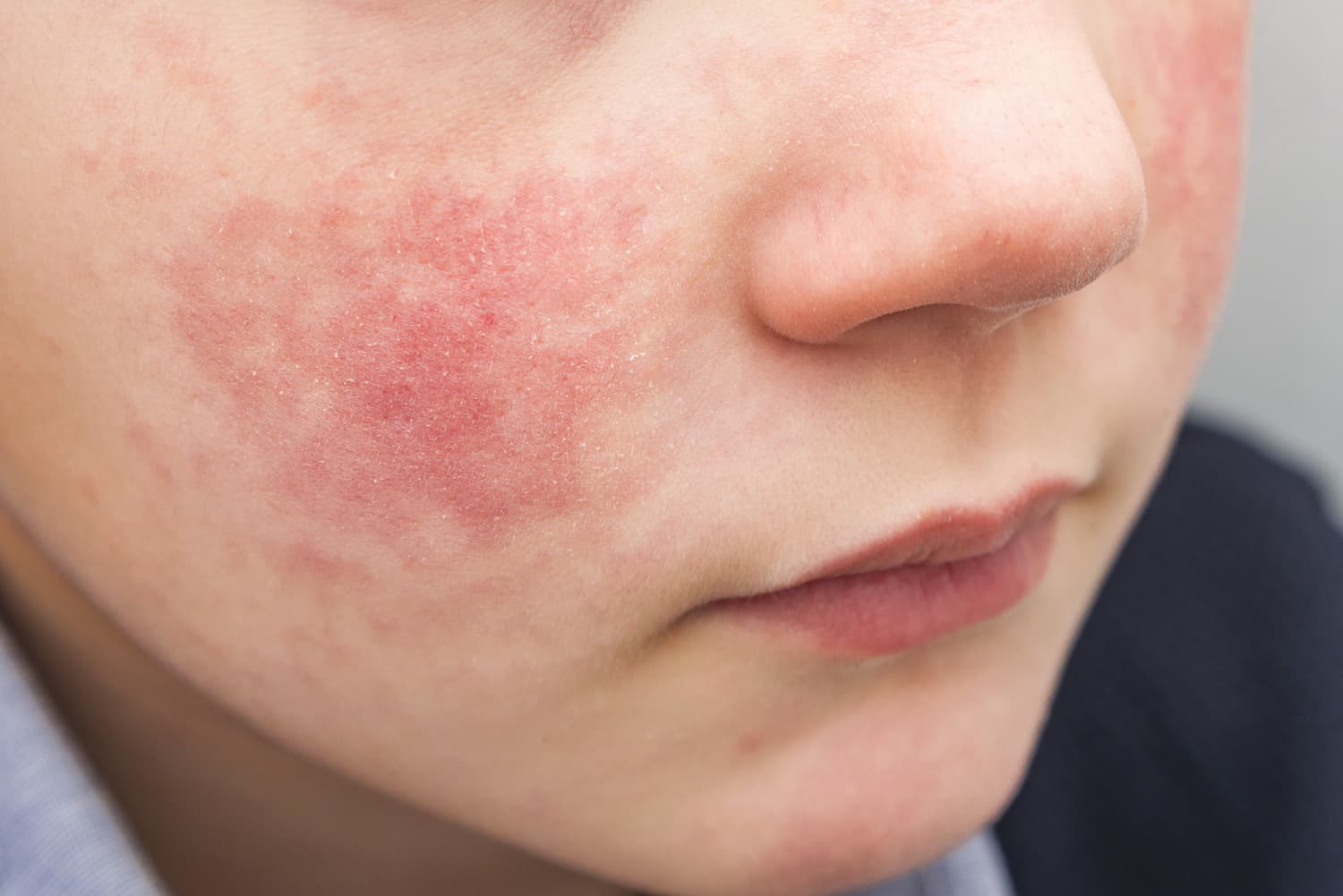
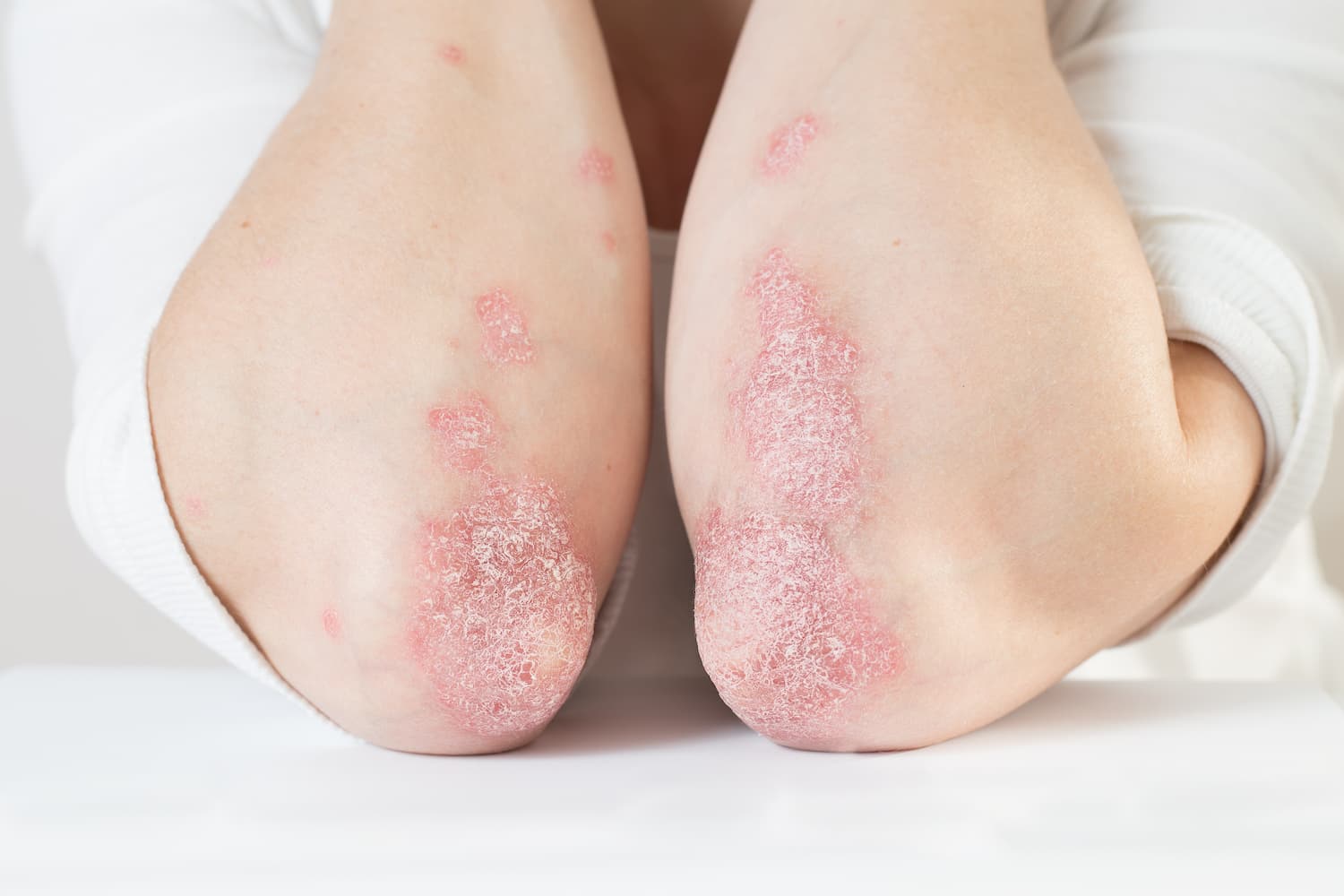
How is eczema diagnosed?
The features of Eczema are usually easily recognised by health visitors, practice nurses and doctors, when they assess the skin. Blood tests and skin tests are usually not necessary. Occasionally the skin may need to be swabbed (by rubbing a sterile cotton bud on it) to check for bacterial or viral infections.
What makes eczema flare-up?
- Many factors in a person’s environment can make Eczema worse; these include heat, dust, woollen clothing, pets and irritants such as soaps, detergents and other chemicals.
- Being unwell, for example having a common cold can cause a flare-up.
- Infections with bacteria or viruses can worsen Eczema. Bacterial infection (usually with a bacteria called Staphylococcus) makes the affected skin yellow, crusty and inflamed, and may need specific treatment. An infection with the cold sore virus (herpes simplex) can cause a sudden painful widespread (and occasionally dangerous) flare-up of Eczema, with weeping small sores.
- Dryness of the skin.
- Teething in babies.
- In some, food allergens may rarely cause a flare up.
- Stress
Can eczema be cured?
Eczema cannot be cured, but there are many ways of controlling it. As they get older, most children with eczema will see an improvement with 60% clear by their teens. However, many of these people continue to have dry skin and so need to continue to avoid irritants such as soaps, detergents and bubble baths.
Eczema may be troublesome for people in certain jobs that involve contact with irritant materials, such as catering, hairdressing, cleaning or healthcare work. In later life, Eczema can present as hand dermatitis and as a result exposure to irritants and allergens must be avoided both in the home and at work.
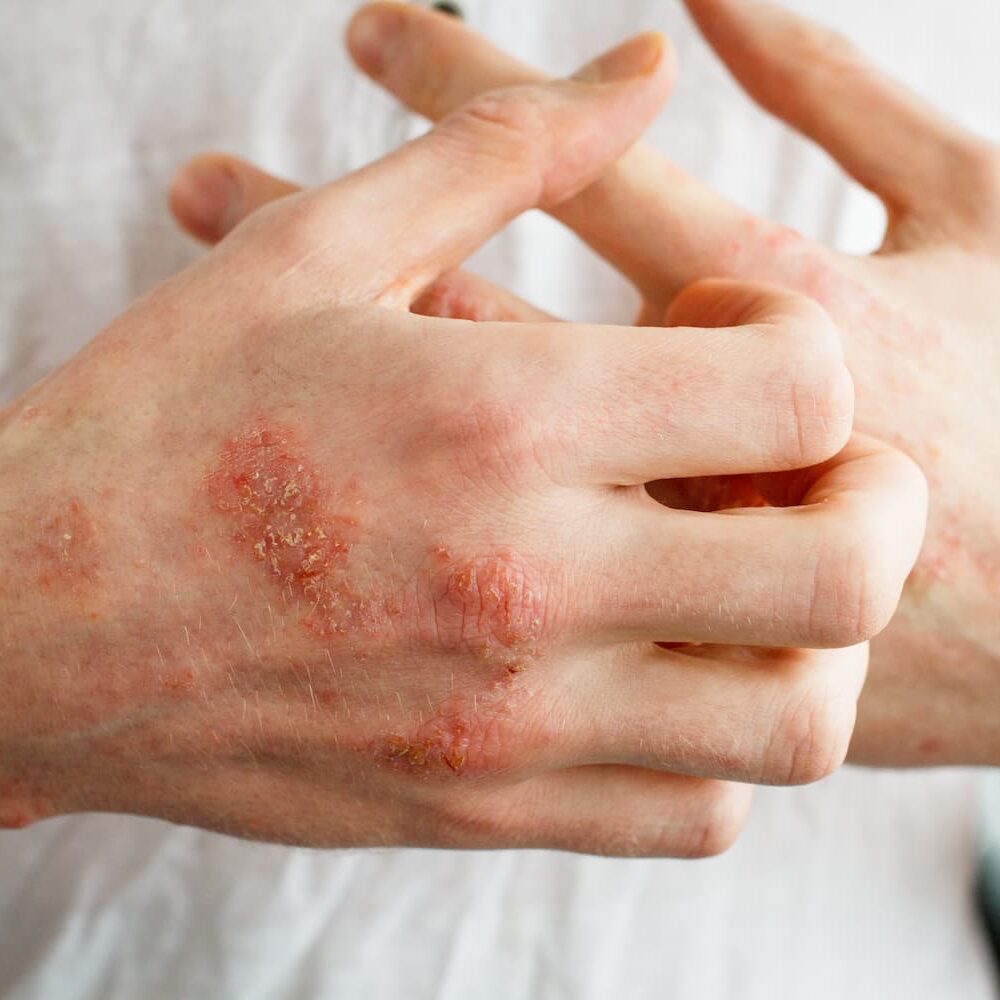
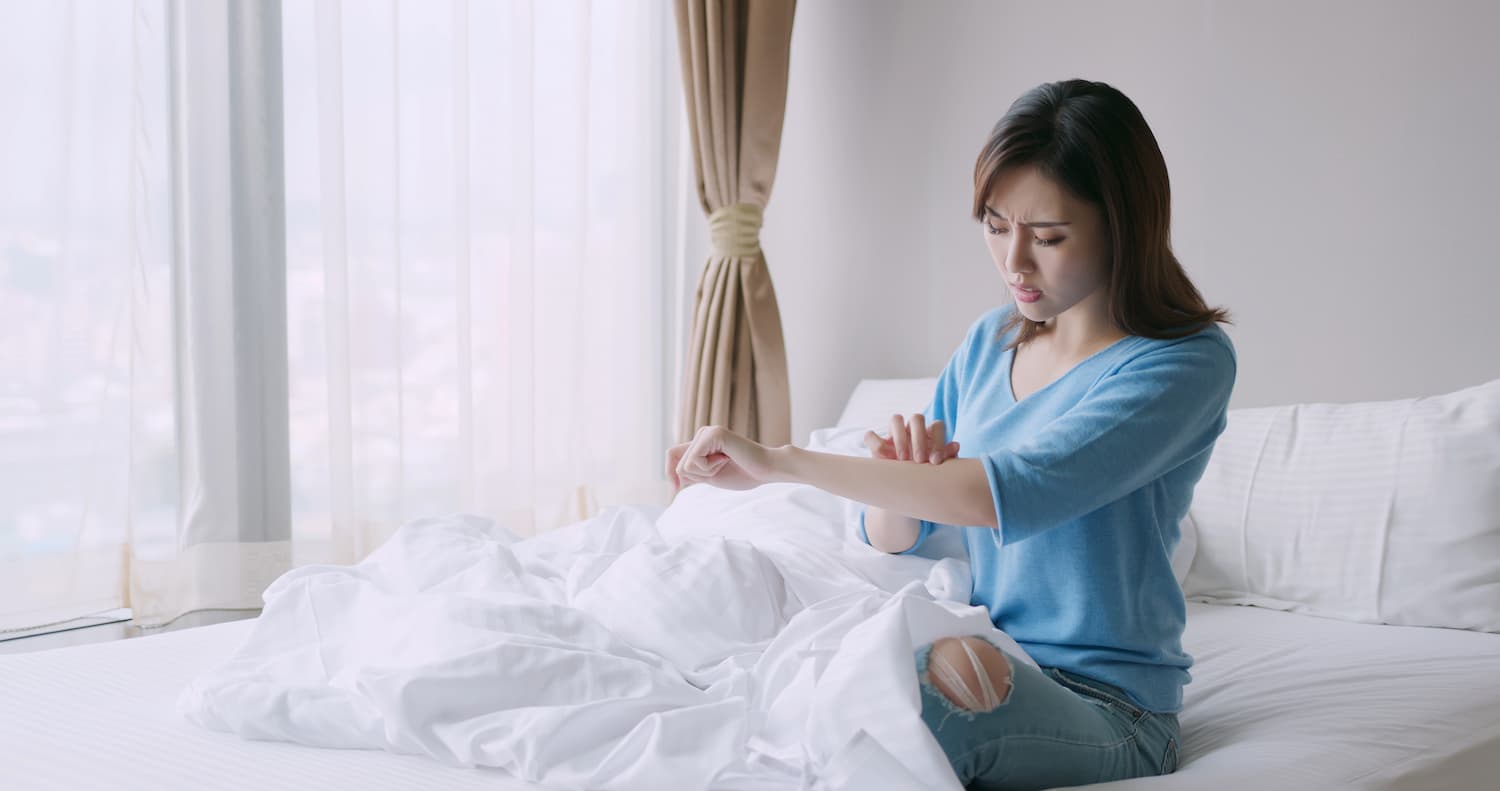
Can eczema be prevented?
Regular use of medical moisturisers can help restore the skin’s barrier in children who might otherwise develop Eczema.
Although exclusive breast-feeding has been advocated for the prevention of eczema in susceptible infants, there is no evidence that this is effective. There is also no definite evidence that organic dairy products help to reduce the risk of eczema, or that eating fish oil during pregnancy helps to prevent eczema in childhood.
For some patients who flare-up frequently, intermittent use of a topical steroid or calcineurin inhibitors (see below) may reduce the number of flare-ups.
How can eczema be treated?
‘Topical’ means ‘applied to the skin surface’. Most eczema treatments are topical, although for more severe eczema some people need to take ‘oral’ medication (by mouth) as well.
‘Complete emollient therapy’ is the mainstay of treatment for all patients with eczema as the most important part of their treatment - this means regular application of a moisturiser (also known as an emollient) and washing with a moisturiser instead of soap (known as a soap substitute).
Self care (What can I do?)
- Moisturise your skin as often as possible, ideally at least 2-3 times each day. The most greasy, non-perfumed moisturiser tolerated is best. This is the most important part of your skin care. Smooth it on in the direction of hair growth. Do not put your fingers back and forth into the pot of moisturiser, as it may become contaminated and be a source of infection. It is best to remove an adequate amount to cover the skin with a spoon or spatula and put this on a saucer or piece of kitchen roll.
- Wash with a moisturiser instead of soap (known as a soap substitute), and avoid soap, bubble baths, shower gels and detergents.
- Wear non-powdered non-rubber gloves (e.g vinyl gloves) to protect your hands and avoid contact with irritants, such as when doing housework.
- Rinse well after swimming and apply plenty of your moisturiser after drying. Make sure that the shower at the swimming pool contains fresh water and not chlorinated water from the swimming pool.
- Wear comfortable clothes made of materials such as cotton and avoid wearing wool next to your skin.
- Try to resist the temptation to scratch. It may relieve your itch briefly, but it will make your skin itchier in the long term. Smooth a moisturiser onto itchy skin.
- Avoid close contact with anyone who has an active cold sore as patients with eczema are at risk of getting a widespread cold sore infection.
- Do not keep pets to which there is an obvious allergy.
- Keep cool. Overheating can make eczema itch more.
- Treat eczema early - the more severe it becomes, the more difficult it is to control.
- Wash clothes with a non-biological washing powder and use a double rinse cycle to remove detergent residues from the clothing.





